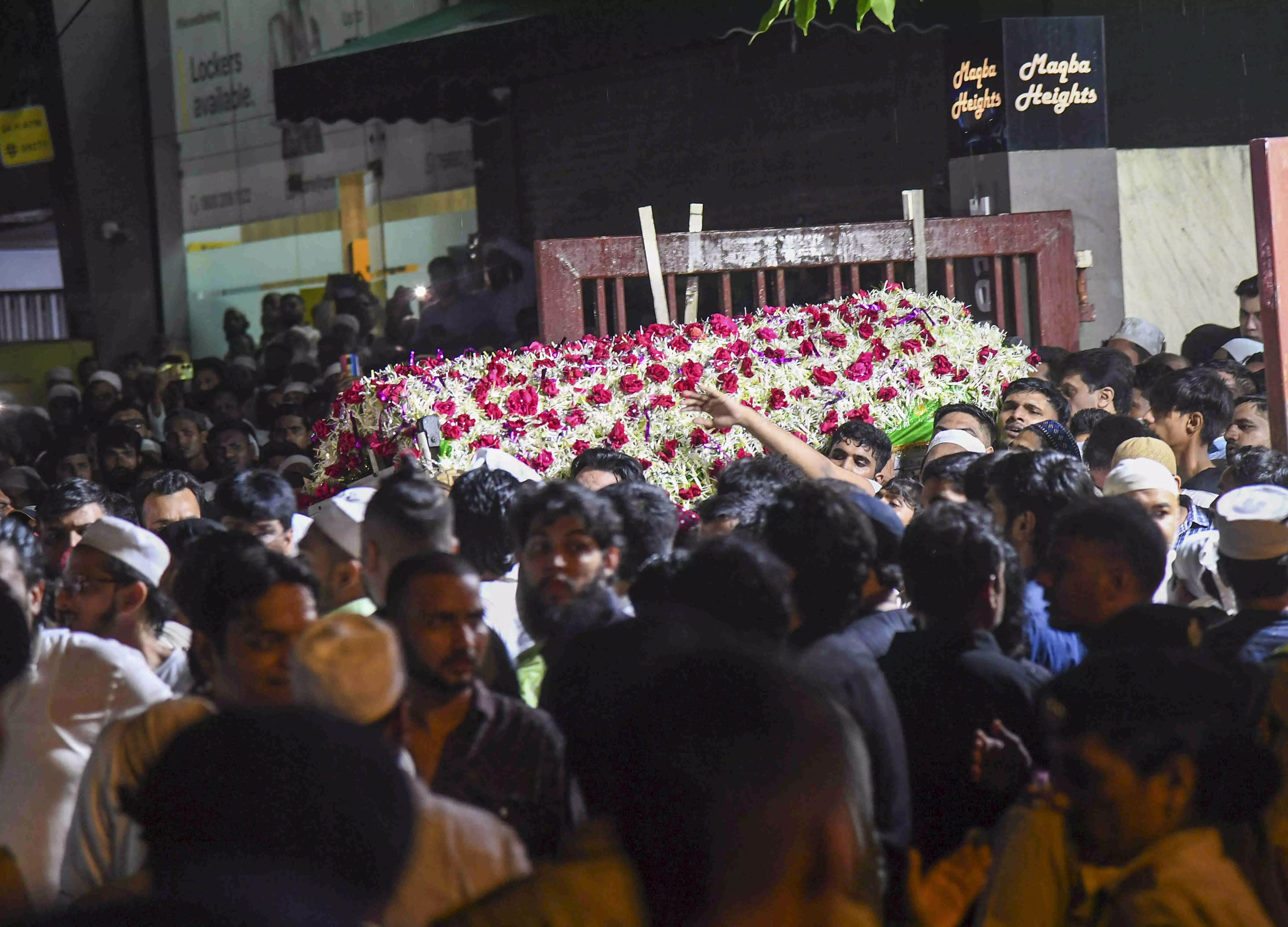Tragic & threatening

Just weeks before Maharashtra assembly elections, the tragic assassination of Baba Siddique—a former Maharashtra minister and a three-time legislator—has heated up the political clime and sent shockwaves across the state. Siddique, who was gunned down outside his son Zeeshan Siddique’s office, was a prominent figure in Maharashtra's political and social circles. He was known for his deep connections within Bollywood. His death raises critical questions about the current state of law and order in Mumbai, a city that has historically struggled with gang violence.
The assassination is reported to have occurred on the night of October 12, 2024, in Bandra’s bustling Kher Nagar—a politically relevant location that represents the city’s cosmopolitan spirit. It may be noted here that Siddique enjoyed high-profile political and social presence, and was provided Y-category security. That the culprits managed to break this shield of security reflects poorly on the law and order situation in the state—a charge that has been actively levelled by the opposition parties. Siddique’s death, in itself, is a validation of this allegation. Two of the attackers were nabbed quickly by the police while the third fled from the crime scene, only to be caught later. Meanwhile, the notorious Lawrence Bishnoi gang—a criminal organisation previously involved in high-profile attacks, including an attempt on Bollywood star Salman Khan’s life—has claimed responsibility for Siddique’s killing. However, the police are still investigating the issue.
The most crucial factor in the case would be the motive behind the crime. As of now, investigation into the killing points to multiple possible motives: from a contract killing linked to a business dispute to tensions over a slum rehabilitation project. The slum rehabilitation angle is particularly pertinent, given the significant stakes involved in Mumbai’s real estate market, which is often marked by shadowy dealings and deep-rooted corruption. Considering the proximity of the upcoming Assembly elections, political motives are also being speculated, which, if found true, can open up a Pandora’s box in the state.
The interface of politics, underworld crime, and business presents an alarming tango. Mumbai had been the receiving end of violence emanating from such an interface in the past. Even the slightest indication of a return of such a trend appears threatening. It is high time that police and other security agencies play a proactive and defining role in limiting the fallouts of the incident, if any. Political parties, too, need to show enough sensibility to prevent the situation from escalating further. Narrow political gains must be forgone for the better good of the state at large. As things stand today, the immediate aftermath of the incident saw political figures from across the spectrum condemning the attack. Deputy Chief Minister Devendra Fadnavis, who also holds the Home portfolio, visited Lilavati Hospital, where Siddique was declared dead after unsuccessful resuscitation efforts. Maharashtra Chief Minister Eknath Shinde, while expressing his shock and regret, assured the public of a thorough investigation. The Opposition, however, wasted no time in launching a scathing critique of the government. The ruling alliance will need to carefully navigate the situation—ensuring that justice is served while defending its record on law and order.
To sum up, Baba Siddique’s killing is a reflection of the deep systemic issues plaguing Maharashtra’s political and social fabric. It will be crucial for the state to not only bring the perpetrators to justice but also to address the underlying causes that make such acts of violence possible. In the run-up to the assembly elections, the state’s political landscape appears to have been irrevocably altered, and how leaders respond to this crisis will shape Maharashtra’s immediate future.



